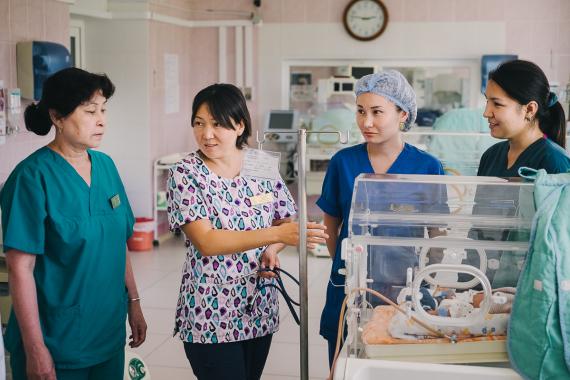NUR-SULTAN – The World Health Organization (WHO) Country Office in Kazakhstan has launched a one-year project to study and provide recommendations to improve gender equality in the healthcare system during the COVID-19 pandemic, the country office reported.

Photo credit: unicef.org.
The WHO will run a cross-sectional survey as part of the project to study the degree of and insights into gender biases and inequalities within the healthcare system. The project will examine frontline medical workers at points of entry, triage units, ambulances, primary health care facilities, perinatal centers, infectious disease, general hospitals, intensive care units, long-term care facilities, and laboratories.
The project will focus on studying female frontlines workers and the inclusion of women at all levels of decision-making in the Kazakh healthcare system. The Dutch Foreign Ministry funded the project to support Kazakhstan in empowering the country’s women.
“It is our hope that this project will help to rebalance the gender dimension of the health services and the overall response to the pandemic,” said Andre Carstens, Dutch Ambassador to Kazakhstan.
Female medical workers compose the majority of frontline workers battling against the COVID-19. Their day-to-day challenges include high levels of exposure to the virus, long working hours, psychological stress, fatigue, occupational burnout, stereotypes, among others.
“A health emergency tends to replicate and exacerbate some of pre-existing bias of health and other systems, with gender inequality being the bias that exists across as well as within all health occupations in many countries,” said Caroline Clarinval, the WHO Representative in Kazakhstan.
The WHO will develop recommendations after consulting with the United Nations (UN) agencies such as the UN Women and the UN Population Fund (UNFPA). The organization will share the survey results and recommendations with the Kazakh government and key stakeholders to help promote total gender parity in the country’s health care system.
